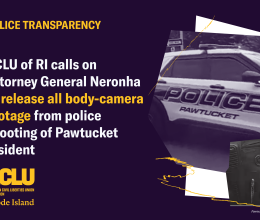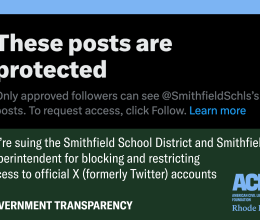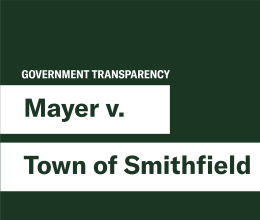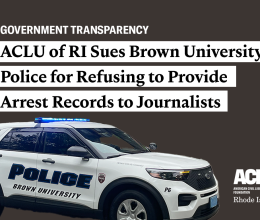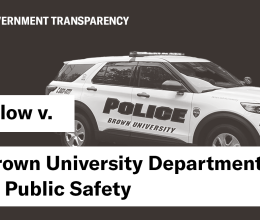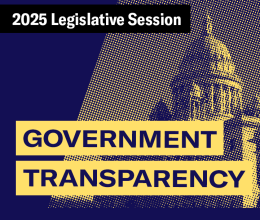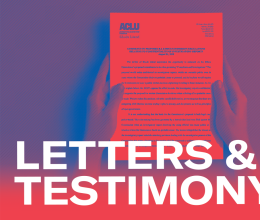
Calling Governor Gina Raimondo’s two-and-a-half-month old executive order giving public bodies extra time to respond to open records requests “unwarranted and extremely damaging to the public interest,” seven media and open government organizations today called on her to immediately rescind the order.
The Access to Public Records Act gives public bodies ten business days to respond to a request for records, and an additional twenty business days if it would constitute an “undue burden” to reply in that initial timeframe. However, the Governor’s executive order has given agencies twenty more business days to respond, which, the letter notes, means that important records can be withheld from the public for almost two-and-a-half months. The order, issued in mid-March, was initially scheduled to last a month, but has been extended twice.
The letter to the Governor took issue with the justifications she had offered for keeping the executive order well beyond its original end date:
The stated rationales that your office recently provided the New York Times for renewing this EO only heighten our concerns. One reason given was that with “many employees [] working around the clock supporting the crisis at hand, it severely impacts our ability to both attend to the crisis and meet [APRA] deadlines.” This implies that the public’s right to know is somehow in conflict with dealing with the crisis, when just the opposite is true: government transparency is more, not less, critical during emergency situations, and has a major role to play in these times. Suggesting that prompt compliance with APRA is a distraction from other government responsibilities trivializes the statutorily-embedded notion that the public’s right to know is a “principle[] of the utmost importance in a free society.” R.I.G.L. §38-2-1.
Your office also suggested that the harm to the public in delaying access to key documents relating to the crisis, such as government contracts, was overblown because the press has “ample opportunity to hold the administration accountable” through your daily press conferences where reporters can “address anything that was unclear.” But to equate news conference availability with public record access is a dangerous and disingenuous non sequitur. It’s hard to ask meaningful questions about a document that’s unseen. In any event, the executive order allows agencies to delay access to any public record, not just those relating to the pandemic-related focus of your news conferences.
Acknowledging that “a temporary extension may have made sense at the beginning of the crisis, the 20-business-day extension already written into the statute is . . . more than sufficient at this stage of the emergency to address any burdens posed by a 10-day deadline.” As a result, the groups said, rescission of the order was essential “[i]n light of the message of indifference that this action is communicating to public bodies about, and the toll it is taking on, the public’s right to know.”
The groups signing the letter were ACCESS/RI, American Civil Liberties Union of Rhode Island, Common Cause Rhode Island, New England First Amendment Coalition, League of Women Voters of Rhode Island, Rhode Island Press Association and the Rhode Island Broadcasters Association.
